Huey P. Newton
Activist Huey P. Newton founded the militant Black Panther Party with Bobby Seale in 1966.
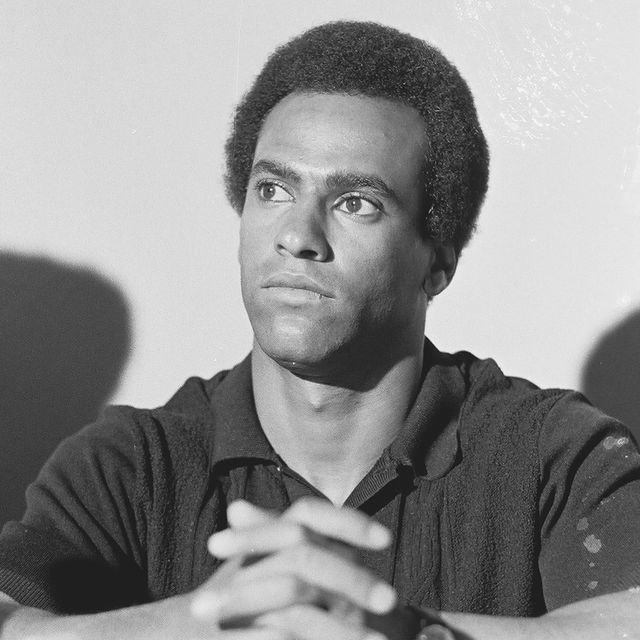
We may earn commission from links on this page, but we only recommend products we back.

Who Was Huey P. Newton?
Quick facts, early life and education, creation of black panthers, arrest and conviction, later years and death, movies and more about huey p. newton.
In 1966, Huey P. Newton and Bobby Seale founded the left-wing Black Panther Party for Self Defense in Oakland, California. The organization was central to the Black Power movement, making headlines with its controversial rhetoric and militaristic style. Newton faced a number of criminal charges over the years and, at one point, fled to Cuba before returning to the United States and earning his doctorate. Struggling with drug and alcohol addiction in his later years, he was shot to death in August 1989 at age 47.
FULL NAME: Huey Percy Newton BORN: February 17, 1942 DIED: August 22, 1989 BIRTHPLACE: Monroe, Louisiana ASTROLOGICAL SIGN: Aquarius
Huey Percy Newton was born on February 17, 1942, in Monroe, Louisiana. The youngest of seven siblings, he and his family moved to Oakland, California, when Huey was a toddler. Although later stating he was close to his family, the youngster had a difficult time early in life, which was reflected in highly erratic behavior at school and on the streets.
As a teenager, Huey faced multiple suspensions and run-ins with the law. But he began to take his education seriously after his older brother Melvin earned a master’s degree in social work. Although Huey graduated high school in 1959, he was considered barely literate. He nonetheless became his own teacher, learning to read by himself.
In the mid-1960s, Huey decided to pursue his education at Merritt College, during which time he received a months-long prison term for a knife assault, and later attended the University of San Francisco School of Law.

Merritt College was where Newton met Bobby Seale . The two were briefly involved with political groups at the school before they set out to create one of their own.
Founded in 1966, they called their group the Black Panther Party for Self Defense. Unlike many of the other social and political organizers of the time, they took a more militant stance to the plight of Black communities in America. A famous photograph shows Newton, the group’s minister of defense, holding a gun in one hand and a spear in the other.
The group set forth its political goals in a document entitled the Ten-Point Program , which called for better housing, jobs, and education for Black Americans. It also called for an end to economic exploitation of Black communities, along with military exemption.
The organization wasn’t afraid to punctuate its message with dramatic appearances. For example, to protest a gun bill in 1967, members of the Panthers entered the California Legislature armed. (Newton wasn’t actually present at the demonstration.) The action was a shocking one that made news across the country, and Newton emerged as a leading figure in the Black militant movement.
The Black Panthers wanted to improve life in Black communities and took a stance against police brutality in urban neighborhoods by mostly white cops. Members of the group would go to arrests in progress and watch for abuse. Panthers ultimately clashed with police several times. The party’s treasurer, Bobby Hutton, was killed while still a teenager during one of these conflicts in 1968.
Newton himself was arrested the previous year for allegedly killing an Oakland police officer during a traffic stop. He was later convicted of voluntary manslaughter and sentenced to two to 15 years in prison. But public pressure—“Free Huey” became a popular slogan of the day—helped Newton’s cause. He was freed in 1970 after an appeals process deemed that incorrect deliberation procedures had been implemented during the trial.
In the 1970s, Newton aimed to take the Panthers in a new direction that emphasized democratic socialism, community interconnectedness, and services for the poor, including free lunch programs and urban clinics. But the Panthers began to fall apart due to factionalism, with later allegations surfacing that the FBI, under J. Edgar Hoover , was clandestinely involved in the organization’s unraveling. Key members left while Newton and Eldridge Cleaver , the party’s minister of information, split ways.
By mid-decade, Newton faced more criminal charges when he was accused of murdering a 17-year-old sex worker and assaulting a tailor. To avoid prosecution, he fled to Cuba in 1974 but returned to the United States three years later. The murder case was eventually dismissed after two trials ended with deadlocked juries. The tailor’s refusal to testify in court brought an end to the assault charges.
Even with his legal troubles, Newton returned to school, earning his doctorate in social philosophy from the University of California, Santa Cruz, in 1980. In his final years, however, he suffered from major drug and alcohol problems and faced more prison time for weapons possession, financial misappropriations, and parole violations.
The once popular revolutionary died on August 22, 1989, in Oakland, California, after being shot on the street. Newton was 47 years old at his death.
Newton had published a memoir/manifesto Revolutionary Suicide in 1973, with Hugh Pearson later writing the 1994 biography The Shadow of the Panther: Huey Newton and the Price of Black Power in America .
Newton’s story was later depicted in the 1996 one-man play Huey P. Newton , starring Roger Guenveur Smith. A 2002 filmed presentation of the project was created by Spike Lee , and documentarian Stanley Nelson looked at the history of the Panthers in the 2015 movie The Black Panthers: Vanguard of the Revolution .
Most recently, Apple TV+ backed a limited series about Newton’s escape to Cuba in 1974 called The Big Cigar . It depicts the fake movie production, backed by real-life producer Bert Schneider, that provided the activist’s cover to leave the United States.
- The first lesson a revolutionary must learn is that he is a doomed man.
- Black Power is giving power to people who have not had power to determine their destiny.
- I do not expect the white media to create positive Black male images.
- We’ve never advocated violence, violence is inflicted upon us. But we do believe in self-defense for ourselves and for black people.
Fact Check: We strive for accuracy and fairness. If you see something that doesn’t look right, contact us !
The Biography.com staff is a team of people-obsessed and news-hungry editors with decades of collective experience. We have worked as daily newspaper reporters, major national magazine editors, and as editors-in-chief of regional media publications. Among our ranks are book authors and award-winning journalists. Our staff also works with freelance writers, researchers, and other contributors to produce the smart, compelling profiles and articles you see on our site. To meet the team, visit our About Us page: https://www.biography.com/about/a43602329/about-us

Civil Rights Activists
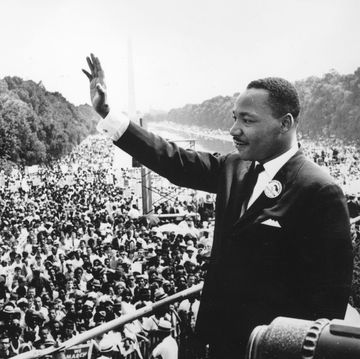
17 Inspiring Martin Luther King Quotes

Martin Luther King Jr.
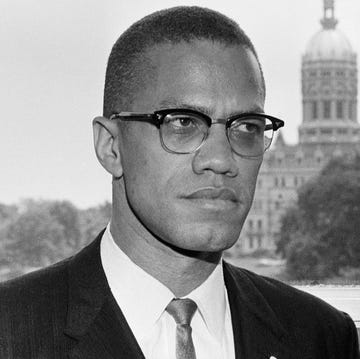
Ethel Kennedy
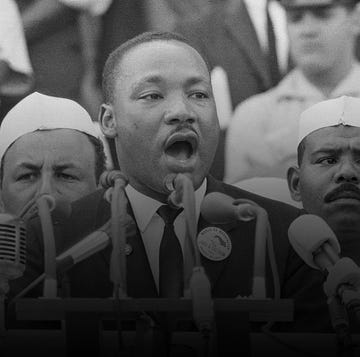
MLK Almost Didn’t Say “I Have a Dream”
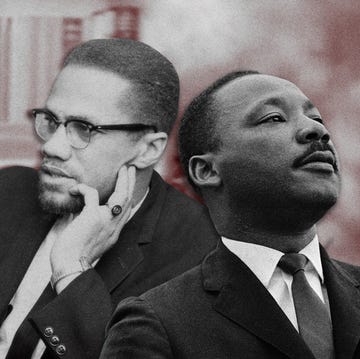
Martin Luther King Jr. Didn’t Criticize Malcolm X

5 Crowning Achievements of Maya Angelou
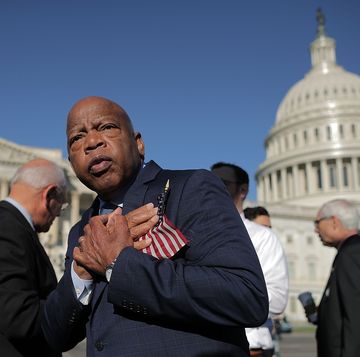
30 Civil Rights Leaders of the Past and Present
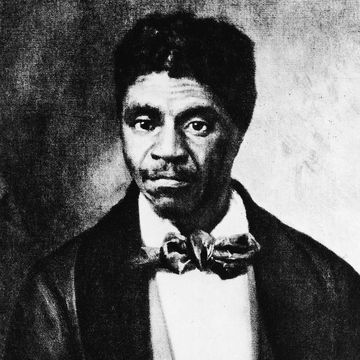
Benjamin Banneker
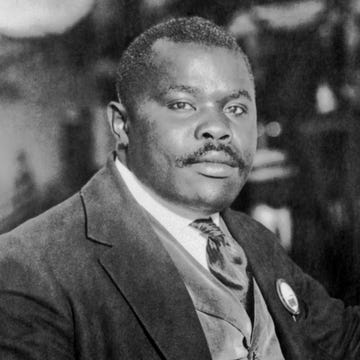
Marcus Garvey
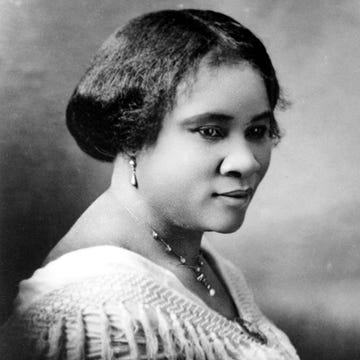
Madam C.J. Walker
African American Heritage

Huey P. Newton (February 17, 1942- August 22, 1989)
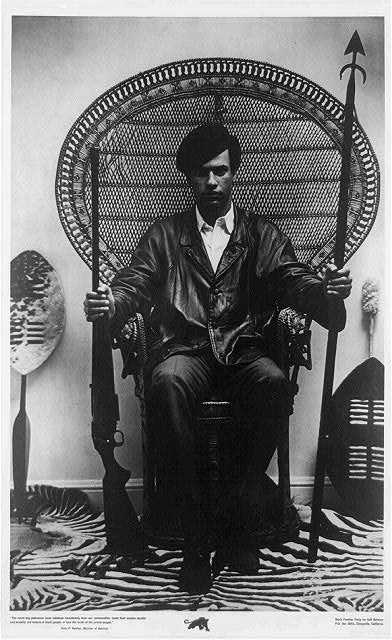
Photo of Huey P. Newton seated in a rattan chair by Blair Stapp ( Library of Congress )
Huey Percy Newton was born in Monroe, Louisiana. His parents moved to Oakland, California during Newton’s childhood. He graduated from high school without having acquired literacy, but he later taught himself to read. He attended a variety of schools including Merritt College before eventually earning a Bachelor’s degree and a Ph.D. from the University of California at Santa Cruz. During his tenure at Merritt College, Newton joined the Afro-American Association and helped get the first African American History course adopted into the college’s curriculum. Soon after, in October 1966, he and Bobby Seale founded the Black Panther Party for Self Defense (BPP). They decided that Seale would be the Chairman and Newton would be the Minister of Defense. Many of the Party’s principles were inspired by Malcolm X and his views. The Party believed that in the Black struggle for justice, violence (or the potential of violence) may be necessary.
The Black Panther Party, under the leadership of Newton, gained international support. This was most demonstrated when Newton was invited to visit China in 1970. He was welcomed enthusiastically by large crowds holding up copies of Quotations from Chairman Mao Tse-tung as well as signs supporting the BPP and criticizing U.S. imperialism.
After returning to the United States, Newton was tried for a variety of violent offenses such as assault and multiple murders. These charges resulted in him fleeing to Havana, Cuba to escape prosecution for three years. Upon his return, he stood trials for one more assault and murder and was acquitted of both charges. Compounding these challenges was the split that developed between Newton and Eldridge Cleaver in early 1971 over the primary function of the Party. Newton wanted the party to focus on serving African American communities while Cleaver thought the focus should be on building relationships with international revolutionary movements. This rift resulted in violence between the factions and the deaths of several BPP members.
In 1989, Newton was fatally shot in West Oakland by a member of the Black Guerilla Family and drug dealer named Tyrone Robinson. Relations between the Black Panther Party and the Black Guerilla Family had been strained for nearly twenty years prior to this incident. The murder occurred after Newton left a drug den in a neighborhood where Newton had once organized social programs. Newton’s last words were, “You can kill my body, and you can take my life but you can never kill my soul. My soul will live forever!” Robinson then shot Newton twice in the face. Newton is buried at Evergreen Cemetery in Oakland. Robinson was convicted of murder in 1991 and was sentenced to 32 years to life in prison.
Social Networks and Archival Context - Huey Newton
Selected Records Relating to Huey Newton
RG 60: Records of the Department of Justice
Subject Files of the Attorney General, 1974 - 1993
[Bell, Griffin B.] Huey P. Newton
RG 65: Records of the Federal Bureau of Investigation (FBI)
Classification 44 (Civil Rights) Headquarters Case Files, 1924 - 1978
Classification 157 (Civil Unrest) Case Files, 1957 - 1978 [Los Angeles, California Field Division]
Classification 157 (Civil Unrest) Case Files, 1957 - 1978 [Sacramento, California Field Division]
Classification 157 (Civil Unrest) Case Files, 1957 - 1978 [New Haven, Connecticut Field Division]
Classification 157 (Civil Unrest) Case Files, 1957 - 1978 [Washington, DC Field Office]
Classification 157 (Civil Unrest) Case Files, 1957 - 1978 [Atlanta, Georgia Field Division]
Classification 157 (Civil Unrest) Case Files, 1957 - 1978 [Savannah, Georgia Field Division]
Classification 157 (Civil Unrest) Case Files, 1957 - 1978 [Honolulu, Hawaii Field Division]
Classification 157 (Civil Unrest) Case Files, 1957 - 1978 [Detroit, Michigan Field Division]
Classification 157 (Civil Unrest) Case Files, 1957 - 1978 [Las Vegas, Nevada Field Division]
44-40024, California (1968-1969) BPP, Eldridge Cleaver, Huey Newton, Bobby Hutton
44-39665, Section 1 Serial 1, California (1968) Eldridge Cleaver, Kathleen Cleaver, Huey Newton, BPP, Emory Douglas
157-5552-v.1-3 -- Huey Newton
157-777-v.1-3 - Mrs Mary B Leckie - Mary Heed Leckie - Mrs H W Leckie- Huey Percy Newton - Edith Smiley - Norman H Smiley
157-1079-v.1 -- Black Panther Party Hartford
157-1079-v.2 -- Black Panther Party Hartford
157-1079-v.3 -- Black Panther Party Hartford
157-1079-v.4 -- Black Panther Party Hartford
157-1079-v.5 -- Black Panther Party Hartford
157-1031-v.1-3 - Huey Percy Newton
157-2908-v.1 -- Huey Percy Newton -- Black Panther Party
157-2908-v.2 Huey Percy Newton -- "The Servant" -- Black Panther Party
157-4120 -- Huey P. Newton Defense Fund
157-5204 -- Huey Percy Newton -- Huey Newton -- Huey P. Newton
157-1581 -- Huey P. Newton -- Black Panther Party (BPP)
157-173 -- Huey P Newton
157-4104-v.1-2 -- Huey Newton
157-780 [Newspaper Clippings] -- Huey Newton
157-841 -- Counterintelligence Program Black Nationalist Hate Groups
RG 263: Records of the Central Intelligence Agency (CIA)
Audio Recordings of Monitored Broadcasts from Havana and Port-Au-Prince, 1968 - 1973
Havana International Service in English. Interview with Black Panther Huey Newton, Part I and II

BlackPast is dedicated to providing a global audience with reliable and accurate information on the history of African America and of people of African ancestry around the world. We aim to promote greater understanding through this knowledge to generate constructive change in our society.
Huey p. newton (1942-1989).
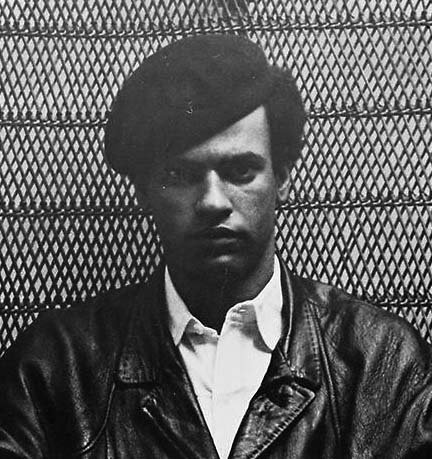
Born in Monroe, Louisiana on February 17, 1942, Huey P. Newton was named after the populist governor Huey Long. His parents moved to Oakland, California during World War II seeking economic opportunities. Newton attended Merritt College, where he joined Phi Beta Sigma Fraternity and met Bobby Seale . At Merritt, Newton fought to diversify the curriculum and hire more black instructors. He also was exposed to a rising tide of Black Nationalism and briefly joined the Afro-American Association. Within this group and on his own, he studied a broad range of thinkers, including Frantz Fanon , Che Guevara, Mao Zedong, E. Franklin Frazier , and James Baldwin .
Newton eventually developed a Marxist/Leninist perspective, where he viewed the black community as an internal colony controlled by external forces such as white businessmen, the police, and city hall. He believed the black working class needed to seize the control of the institutions that most affected their community and formed the Black Panther Party for Self Defense with Bobby Seale in October 1966 to pursue that goal.
Newton became the Minister of Defense and main leader of the Party. Writing in the Ten-Point Program, the founding document of the Party, Newton demanded that blacks need the “power to determine the destiny of our Black Community.” That power would allow blacks to gain “land, bread, housing, education, clothing, justice and peace.”
Taking advantage of a California law that allowed people to carry non-concealed weapons, the Panthers instituted armed patrols that monitored police activity in the black community. These patrols led to increasingly tense relations with the police, and in October 1967 Newton was arrested following a Panther-police shootout that resulted in the death of an Oakland police officer. Considered a political prisoner by many on the left, the Panthers orchestrated a Free Huey campaign led by the Party’s Minister of Information, Eldridge Cleaver . Charles R. Geary, a well-known attorney, headed Newton’s legal defense, and in July 1968 Newton was convicted of the lesser charge of voluntary manslaughter. That conviction was overturned on appeal, and in 1970 Newton was freed from prison.
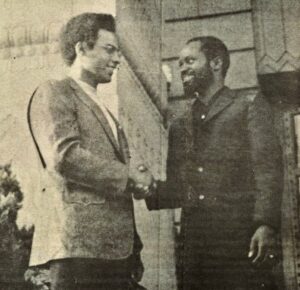
Newton’s leadership of the Black Panther Party in the early 1970s helped contribute to its demise. He led a number of purges of Party members, most famously in 1971 when he expelled Eldridge Cleaver in what was called the Newton-Cleaver split. In 1974, Newton was accused of assaulting a prostitute who later died. Instead of standing trial, he fled to Cuba. He returned to the U.S. in 1976, stood trial, but was acquitted. In 1978, he enrolled in the History of Consciousness program at the University of California, Santa Cruz where he earned his doctorate in 1980. His dissertation, “War Against the Panthers: A Study of Repression in America,” was later published as a book.
Huey Newton was murdered in Oakland, California on August 22, 1989; he was 47 years old. He was survived by his wife Fredricka. Newton’s autobiography entitled Revolutionary Suicide was first published in 1973 and republished in 1995.
Do you find this information helpful? A small donation would help us keep this available to all. Forego a bottle of soda and donate its cost to us for the information you just learned, and feel good about helping to make it available to everyone.
BlackPast.org is a 501(c)(3) non-profit and our EIN is 26-1625373. Your donation is fully tax-deductible.
Cite this entry in APA format:
Source of the author's information:.
Huey P. Newton, To Die For The People: The Writings of Huey P. Newton (New York, Random House, 1972); Newton, War against the Panthers: A Study of Repression in America (New York: Harlem River Press, 1996); and Peniel E. Joseph, Waiting ‘til the Midnight Hour: A Narrative History of Black Power in America (New York: Henry Holt and Co., 2006).
OLD PAGINATION BELOW
FAMOUS AFRICAN AMERICANS
- Huey P. Newton

Huey Percy Newton was an African American leader and co-founder of the Black Panther Party. He was the youngest of seven children born to Armelia Johnson and Walter Newton on February 17, 1942 in Monroe, Louisiana and named after the former Governor of Louisiana, Huey Long. His family was not very well off, and often moved from place to place. Although he graduated from Oakland Technical High School, he could hardly even read by the time he finished. Newton recalls the sense of shame he was made to feel by his teachers for being African American, and said that never once had he been taught anything useful. Deciding to take matters in his own hands, Newton began to learn how to read and write on his own.
He had a troubled childhood, and was arrested several times as a teenager for gun possession and vandalism. After high school, he enrolled at Merritt College in Oakland where he continued to be involved in criminal activities such as burglary and similar petty crimes. Ironically enough, he studied law at college, which he initially intended to use to become a better criminal. He soon became involved in local political activities and used his influence to establish a course in African American history at the college. In October 1966, Newton and his associate Bobby Seale , founded the “Black Panther Party for Self Defense” which worked exclusively for the benefits and rights of African Americans. Influenced by the works of Marx, Lenin, Malcolm X and Che Guevara, Newton and Seale established a “Ten Point Program” as the party’s agenda, including education, housing and jobs as its priorities.
One of the main points of focus for the Black Panther Party was the right of self defense. Newton believed and preached that violence, or even the threat of it, is sometimes necessary to accomplish your goals. Black Panther Party members once stormed the California Legislature while fully armed in order to protest the outcome of a gun bill. He recruited new members at social gatherings such as bars and parties. He started a number of social reforms such as the Free Breakfast for Children Program, martial arts training for teenagers, and education programs for children from impoverished backgrounds.
One of Huey P. Newton’s causes was police brutality, but he himself was arrested on charges of killing a white policeman named John Frey. He was charged with voluntary manslaughter and sentenced to 2-15 years in prison. However, due to immense public pressure, a retrial was held and Newton was acquitted. Another criminal case he was involved in was the murder of a 17 year old girl named Kathleen Smith. Newton fled to Cuba with his girlfriend and stayed there for 3 years. The key witness in the trial was Crystal Gray, and three Black Panther party members attempted to assassinate her before she gave her testimony. Newton returned from Cuba and stood trial, but denied any involvement in the matter. The jury was deadlocked, and Newton was eventually acquitted. In 1982, he was sentenced to 6 months in jail and 18 months of probation on charges of embezzling party funds.
Newton also pursued a Ph.D. from the University of California, Santa Cruz in History of Consciousness. His doctoral thesis was titled “War Against the Panthers: A Study of Repression in America”. Several factions had broken away from the main party, and one of these was the Black Guerrilla Family (BGF). On August 22, 1989, Newton was assassinated by a member of the BGF named Tyrone Robinson. Huey P. Newton was 47 years old at the time of his death. In 1991, Robinson was convicted of Newton’s murder and sentenced to 32 years to life in prison.
Write About Huey P. Newton
Famous african americans.
- Jesse Jackson
- Jesse Jackson Jr.
- Jesse Owens
- Jessye Norman
- Jimi Hendrix
- Joe Frazier
- John Coltrane
- John Lee Hooker
- Johnnie Cochran
- Josephine Baker
- Josh Gibson
- Julian Bond
- Kareem Abdul-Jabbar
- Karl Malone
- Kimora Lee Simmons
- Kirby Puckett
- Kobe Bryant
- Langston Hughes
- Larry Holmes
- Latrell Sprewell
- Laurence Fishburne
- Lauryn Hill
- Lawrence Taylor
- LeBron James
- Leon Spinks
- Lester Young
- LeVar Burton
- Lorraine Hansberry
- Louis Armstrong
- Louis Farrakhan
- Luther Vandross
- Madame C.J. Walker
- Mae Jemison
- Mahalia Jackson
- Marcus Garvey
- Marian Anderson
- Marian Wright Edelman
- Marion Jones
- Martin Lawrence
- Martin Luther King Jr.
- Marvelous Marvin Hagler
- Marvin Gaye
- Mary J. Blige
- Mary McLeod Bethune
- Maya Angelou
- Medgar Evers
- Michael Jackson
- Michael Jordan
- Michael Sam
- Michelle Obama
- Miles Davis
- Missy Elliott
- Morgan Freeman
- Moses Malone
- Muddy Waters
- Muhammad Ali
- Nat King Cole
- Natalie Cole
- Nina Simone
- O.J. Simpson
- Octavia Butler
- Octavia Spencer
- Oprah Winfrey
- Oscar Robertson
- Ossie Davis
- Otis Redding
- Ozzie Smith
- Patrick Ewing
- Paul Laurence Dunbar
- Paul Robeson
- Percy Julian
- Pernell Whitaker
- Queen Latifah
- Quincy Jones
- Quvenzhané Wallis
- Ralph Ellison
- Reggie Jackson
- Reggie White
- Richard Pryor
- Richard Wright
- Rickey Henderson
- Romare Bearden
- Roy Jones Jr.
- Ruby Bridges
- Sammy Davis Jr.
- Sarah Vaughan
- Satchel Paige
- Scatman Crothers
- Scott Joplin
- Scottie Pippen
- Serena Williams
- Shaquille O'Neal
- Sheryl Swoopes
- Sidney Poitier
- Smokey Robinson
- Sojourner Truth
- Sonny Liston
- Steve McNair
- Stevie Wonder
- Stokely Carmichael
- Sugar Ray Leonard
- Sugar Ray Robinson
- Tavis Smiley
- Teddy Pendergrass
- Terrence Howard
- Thandie Newton
- The Notorious B.I.G.
- Thelonious Monk
- Thomas Hearns
- Thurgood Marshall
- Thurman Thomas
- Tiger Woods
- Tina Turner
- Toni Morrison
- Tony Dorsett
- Tupac Shakur
- Tyler Perry
- Vanessa Williams
- Venus Williams
- Ving Rhames
- Viola Davis
- W. E. B. Du Bois
- Walt Frazier
- Walter Payton
- Warren Moon
- Wesley Snipes
- Whitney Houston
- Whoopi Goldberg
- Willie Mays
- Wilma Rudolph
- Wilt Chamberlain
- Wynton Marsalis
- Zora Neale Hurston
- A. Philip Randolph
- Aaron Neville
- Al Sharpton
- Alfre Woodard
- Alice Walker
- Althea Gibson
- Alvin Ailey
- Andre Braugher
- Andrew Young
- Angela Bassett
- Angela Davis
- Aretha Franklin
- Arthur Ashe
- Avery Brooks
- Ayaan Hirsi Ali
- Barack Obama
- Barbara Jordan
- Barry Bonds
- Barry Sanders
- Bayard Rustin
- Benjamin Banneker
- Berry Gordy
- Bessie Coleman
- Bessie Smith
- Betty Shabazz
- Bill Russell
- Billie Holiday
- Bobby Seale
- Booker T. Washington
- Brandy Norwood
- Busta Rhymes
- Cab Calloway
- Carl Weathers
- Carmelo Anthony
- Cassandra Wilson
- Cecil Fielder
- Chamillionaire
- Charles Rangel
- Charlie Ward
- Chris Tucker
- Chuck Berry
- Cicely Tyson
- Clarence Thomas
- Claudette Colvin
- Colin Powell
- Condoleezza Rice
- Coretta Scott King
- Cornel West
- Count Basie
- Cris Carter
- Crispus Attucks
- DaMarcus Beasley
- Damon Wayans
- Danny Glover
- Darius Rucker
- David Robinson
- Deacon Jones
- Debbie Allen
- Deion Sanders
- Denmark Vesey
- Dennis Rodman
- Denzel Washington
- Derek Jeter
- Derek Walcott
- Diahann Carroll
- Dinah Washington
- Dizzy Gillespie
- Dominique Dawes
- Dominique Wilkins
- Don Cheadle
- Dorothy Dandridge
- Duke Ellington
- Dwyane Wade
- Earl Campbell
- Eartha Kitt
- Eddie Murphy
- Elgin Baylor
- Elijah Muhammad
- Ella Fitzgerald
- Ellen Johnson Sirleaf
- Emmett Till
- Emmitt Smith
- Eric Dickerson
- Eric Holder
- Eriq La Salle
- Ernie Banks
- Ernie Davis
- Esther Rolle
- Evander Holyfield
- Flip Wilson
- Florence Griffith Joyner
- Floyd Patterson
- Forest Whitaker
- Franco Harris
- Frank Robinson
- Frank Thomas
- Fred Williamson
- Frederick Douglass
- Gabourey Sidibe
- Gale Sayers
- Gary Coleman
- George Clinton
- George Foreman
- George Gervin
- George Washington Carver
- Gloria Reuben
- Gordon Parks
- Gregory Hines
- Gwendolyn Brooks
- Hakeem Olajuwon
- Halle Berry
- Harriet Tubman
- Harry Belafonte
- Hattie McDaniel
- Henry Louis Gates
- Herbie Hancock
- Herman Cain
- Herschel Walker
- Howlin' Wolf
- Isaac Hayes
- Isiah Thomas
- Jackie Joyner-Kersee
- Jackie Robinson
- Jacob Lawrence
- Jada Pinkett-Smith
- James Baldwin
- James Brown
- James Earl Jones
- James Meredith
- James Weldon Johnson
- Jayson Williams
- Jean-Michel Basquiat
- Jennifer Hudson
- Museum Dedicated to African American History and Culture is Set to Open in 2016
- 6 Must-See Malcolm X Posters
- Scholarships for African Americans – Black Scholarships
- African-American Civil Rights Movement
- African Americans in WW2
- African American History
- Top 10 Most Famous Black Actors of All Time
- Top 10 Richest African Americans
- Earth and Environment
- Literature and the Arts
- Philosophy and Religion
- Plants and Animals
- Science and Technology
- Social Sciences and the Law
- Sports and Everyday Life
- Additional References

- Historians, Miscellaneous: Biographies

Newton, Huey 1942–1989
Huey newton 1942 – 1989.
Civil rights activist, author
At a Glance …
Monitored public abuse of blacks, developed social programs, “ the death of a demagogue ”, selected writings.
During the 1960s civil rights movement in the United States , no group united the desires of a minority community while alienating those outside of it more than the Black Panther Party. To those it served, the Black Panther Party was a grass roots organization that aided the indigent in the black community, sought to protect the young and old from what its members saw as a tyrannical and insensitive government, and “ represented a significant stage in the development of the movement for black political involvement, ” U.S. Representative Ronald Dellums told Bill Turque in Newsweek . To many of its nonmembers, the Black Panther Party was perceived as a violent, revolutionary gang bent on achieving anarchy through destruction. Dressed in black berets and black leather jackets, their fists raised in angry defiance, its members “ were more than enough to unnerve an establishment still shaky from Vietnam war protests, civil rights marches, and inflamed ghettos, ” Dennis Hevesi wrote in the New York Times .
Huey Newton , cofounder of the Black Panther Party and its chief theoretician, embodied the dual perceptions of the group. He was a man who overcame illiteracy and attended college, debated theories of revolution with social psychologist Erik Erikson at Yale University , gave a silent community a sociopolitical voice, and was nominated as a candidate for the U.S. Congress by the Peace and Freedom Party in 1968. He was also a man stained by violence, a onetime fugitive and ex-convict who, in the last decade of his life, abused alcohol and drugs and finally died, as a Time reporter put it, “ lying in a pool of blood on a sidewalk in a crack-infested Oakland [ California ] neighborhood with three bullets in his head. ”
Growing up poor in a large family in Oakland, Newton began exhibiting antisocial behavior early in life. Hevesi related that Newton “ spent his childhood in a state of war with his teachers, being suspended from school about 30 times, breaking open parking meters, and being arrested at 14 years old for gun possession. ” His inattentiveness in school resulted in his being functionally illiterate even after graduation from high school. But his admiration for his older brother, who earned a master ’ s degree in social work , coupled with his desire to prove his school counselors wrong in their assessment of his abilities, translated
Born Huey Percy Newton, February 17, 1942, in Monroe (some sources say New Orleans ), LA; died of gunshot wounds to the head, August 22,1989, in Oakland, CA; son of Walter (a sharecropper and Baptist minister) and Armelia Newton; married Fredrika Slaughter; children: Ronnie, Jessica, and Kieron. Education : Merritt College, associate ’ s degree, 1965; attended University of San Francisco Law School; University of California at Santa Cruz , Ph.D., 1980.
Cofounder (with Bobby Seale), minister of defense, and chief theoretician of the Black Panther Party, 1966-89; writer. Sentenced to two to 15 years in prison for voluntary manslaughter of an Oakland, CA, police officer, 1967; released on appeal, 1970; worked in a cement factory while in exile in Cuba , 1974-77; sentenced to nine months in prison for possession of a handgun, 1987; sentenced to six months in prison for misappropriation of public funds, 1989.
into a determination to learn to read and to eventually attend college.
Newton earned an associate ’ s degree in social science from Merritt College in Oakland, and he also took courses at the University of San Francisco Law School. Higher education, however, did not quell his street-bred anger. While attending Merritt, Newton brandished a knife during a political argument at a party and consequently served a six-month prison term. But his quick anger and disregard for authority belied his growing racial and social awareness, his concern about the treatment of his community, and what he felt was the needless impoverishment of the ghetto. These concerns were shared by fellow Merritt student Bobby Seale. Together, following the doctrines of former Chinese ruler Mao Tsetung, black scholar W. E. B. DuBois, and, especially, civil rights activist Malcolm X , Newton and Seale organized the Black Panther Party in October of 1966, with Seale as chairman and Newton as minister of defense. The name and symbol expressed the party ’ s notion that, like the panther, they would not attack unless attacked.
The manifesto of the party, penned by Newton, demanded the racial equality sought by other civil rights groups of the period in such areas as education, employment, and housing. Unlike the others, though, the Black Panther Party also sought the exemption of black men from military service and an end to what it viewed as police brutality. But the Party ’ s unwritten goal was far different from any of the other civil rights groups. Former Panther Earl Anthony, in his book Spitting in the Wind , quoted Newton as saying: “ The ultimate goal of the Black Panther Party is to organize for armed revolution in America. ” While he could not justify violent actions, Stanley Crouch , writing for the New Republic , empathized with the Panthers ’ anger: “ The actions of the FBI [ Federal Bureau of Investigation ] and the resolve of the federal government during the great years of the civil rights movement were so faint of heart that the alienation felt by the Black Panthers was not without reason. The contempt for the dignity and security of Negroes was unbelievably great. ”
Citing a California law that allowed firearms to be carried in public, Newton and Seale sought to secure the black community against oppression. “ They patrolled the Oakland streets at night, looking for public abuse of blacks, ” Anthony explained. “ And if they saw a policeman with a black suspect, Newton would get out of the car with a law book and armed with a sawed-off shotgun and explain the black suspect his legal rights. ” As a result, the relationship between the black community and the police festered. But it was not until 30 armed Black Panthers disrupted the California state assembly in Sacramento on May 2, 1967, protesting a proposed gun control law, that the police intensified their surveillance and harassment of members of the Black Panther Party.
On October 28, 1967, returning from a party at five o ’ clock in the morning, Newton and a fellow passenger were stopped for a traffic check by an Oakland police officer. Soon another officer arrived. What ensued is still debated, but what resulted is known: one officer was shot dead with his own gun, and Newton and the other officer were wounded. Newton was charged with first-degree murder, and his trial soon polarized the country, radicals against the establishment. The battle cry “ Free Huey! ” echoed across college campuses already fraught with protest. A poster of Newton — dressed in Panther uniform, sitting on a rattan chair, holding a spear in one hand and an M-l rifle in the other — appeared everywhere. Party membership increased dramatically with new chapters forming across the nation. Thousands of demonstrators surrounded the courthouse when Newton ’ s trial began. But after eight weeks, he was found guilty of voluntary manslaughter and sentenced to two to 15 years in prison.
Two and a half years later, however, Newton ’ s conviction was reversed on an appeal that cited, among other technical errors, the trial judge ’ s failure to deliver complete instructions to the jury regarding Newton ’ s defense. Newton returned to the leadership of the Black Panther Party only “ to find that party membership in 45 cities had dropped below 1,000, depleted by arrests, killings, and defection, ” Hevesi noted. The Party was also split into rival groups that further destroyed its effectiveness. Time described the cause of this fractionalization: “ One reason was that the FBI had begun a campaign of dirty tricks — counterfeit Panther documents, fake denunciations of various Panthers as police informants — in an effort to disrupt what the agency ’ s Washington intelligence chief called ‘ the most violence prone of all the extremist groups. ’ ”
The Party ’ s members were further split between the beliefs of Newton and Eldridge Cleaver , the Party ’ s minister of information. Cleaver, in exile in Algeria at the time to avoid criminal charges, advocated continued resistance through violent revolutionary tactics. But Newton, shortly before his release from prison, offered a softer, more mainstream approach for the group: “ The Black Panther Party will now try to grow above ground as a political and social issues organization, ” as quoted by Anthony. Those Panthers loyal to Newton helped him develop social programs in the black community, including a nationwide children ’ s breakfast program, an accredited elementary school , a bus service for relatives visiting prison inmates, and free health clinics. In Civil Rights: A Current Guide to the People, Organizations, and Events , Joan Martin Burke pointed out Newton ’ s desire to seek a “ democratic socialist society, free of racism, ” and to have the Party “ participate in every community institution. We believe in intercommunalism — the relatedness of all people. We want to be part of the whole. ”
But his means to achieve these ends were often illicit. As quoted by Anthony, Newton described how the Party would raise money to support their desired programs: “ We will ask donations from black businesses in the [ San Francisco ] Bay Area to support our community programs. … But we will also ask every dealer of marijuana, pills, cocaine, and heroine, and every pimp and prostitute in the Oakland and Berkeley [California] areas to give us a percentage of their earnings or they can ’ t operate here. ” And Newton ’ s behavior, Crouch asserted, became detrimental to the liberation of the black community: “ The decline in the movement begun by [civil rights activist] Rosa Parks and those marvelous young men who sat at a lunch counter in North Carolina was perhaps most perfectly illustrated by the spectacle of Huey Newton [during a visit to] China , sitting in the Great Hall of the People snorting cocaine and bursting into unintelligible rants. ”
“ Newton ’ s own gifts were poisoned by violence and a streak of singular brutality, ” Turque pointed out. Newton could be, as John F. Baker described him in Publishers Weekly in 1973, “ the least stale and jaded political exponent you are likely to hear, because no matter how tired the ideas he is voicing, his enthusiasm and humor lend them new freshness. ” But within a year Newton was charged with “ fatally shooting a 17-year-old prostitute because she didn ’ t recognize him and with pistol-whipping a tailor who affectionately called him ‘ baby, ’ ” Turque wrote. After these charges, Newton, who previously insisted that “ he would never choose exile for himself, even if he were convicted again on a retrial, ” according to Burke, fled to Cuba for three years, returning in 1977 to face charges. The murder charges were dismissed after two trials ended with deadlocked juries, and the assault charge ended in acquittal after the tailor refused to testify against Newton.
Newton returned to academics, earning a doctorate degree in social philosophy from the University of California at Santa Cruz in 1980. His dissertation was titled “ War Against the Panthers: A Study of Repression in America. ” But for all practical purposes, it was simply an outline of recent history. The Panther organization, having been broken up by the FBI, was by this time insubstantial. Newton had also begun his own dissolution. According to a Time reporter, Newton “ acknowledged drinking two quarts of cognac a day and abusing cocaine, heroine, and Valium. ” His participation in a 1984 drug abuse program proved ineffectual, as did his attempts to stay clear of the law. He went back to prison for various offenses, including possession of a handgun and possession of narcotics paraphernalia. The most telling incident of his decline was a 1989 conviction for embezzling funds intended for a school run by the Panthers in the early 1980s. By the end of the decade, “ years of drugs and alcohol, money worries and repeated jousts with the law had left the ’ 60s firebrand running scared, a paranoid shadow of his prime, ” Turque observed.
Ironically, Newton was killed on the same streets where he began the Black Panther Party 23 years earlier, gunned down by a 25-year-old drug pusher trying to win favor and promotion in a drug-distribution gang called the Black Guerrilla Family. For many, however, Newton ’ s end had come much earlier. Crouch emphasized that after his social achievements, “ Newton went on to become a mere extortionist, perhaps a murderer, certainly an embezzler of funds for a community school. He whiled away his last years seeking one high or another. His death, like that of his namesake Huey Long, was the death of a demagogue, not the loss of a political visionary. ” And the community in which he was raised and which he sought to help offered this sad but appropriate farewell, as captured by Turque: “ A small florist ’ s card, resting with bouquets of red gladioluses and white dahlias on a chain-link fence near the shooting scene, summed it up: ‘ Huey: for the early years. ’ ”
To Die for the People: The Writings of Huey P. Newton , Random House, 1972.
Revolutionary Suicide , Harcourt, 1973.
In Search of Common Ground : Conversations with Erik H. Erikson and Huey P. Newton , Norton, 1973.
(With Ericka Huggins) Insights and Poems , City Lights, 1975.
Acton, Jay, Alan Le Mond, and Parker Hodges, Mug Shots: Who ’ s Who in the New Earth , World Publishing, 1972.
Anthony, Earl, Spitting in the Wind , Roundtable, 1990.
Burke, Joan Martin, Civil Rights: A Current Guide to the People, Organizations, and Events , second edition, Bowker, 1974.
Periodicals
New Republic , September 18, 1989.
Newsweek , September 4, 1989.
New York Times , March 14, 1987; August 23, 1989; August 27, 1989; August 28, 1989.
Publishers Weekly , April 23, 1973.
Time , November 13, 1978; September 4, 1989.
— Rob Nagel
Cite this article Pick a style below, and copy the text for your bibliography.
Nagel, Rob " Newton, Huey 1942–1989 . " Contemporary Black Biography . . Encyclopedia.com. 8 Jan. 2025 < https://www.encyclopedia.com > .
Nagel, Rob "Newton, Huey 1942–1989 ." Contemporary Black Biography . . Encyclopedia.com. (January 8, 2025). https://www.encyclopedia.com/education/news-wires-white-papers-and-books/newton-huey-1942-1989
Nagel, Rob "Newton, Huey 1942–1989 ." Contemporary Black Biography . . Retrieved January 08, 2025 from Encyclopedia.com: https://www.encyclopedia.com/education/news-wires-white-papers-and-books/newton-huey-1942-1989
Citation styles
Encyclopedia.com gives you the ability to cite reference entries and articles according to common styles from the Modern Language Association (MLA), The Chicago Manual of Style, and the American Psychological Association (APA).
Within the “Cite this article” tool, pick a style to see how all available information looks when formatted according to that style. Then, copy and paste the text into your bibliography or works cited list.
Because each style has its own formatting nuances that evolve over time and not all information is available for every reference entry or article, Encyclopedia.com cannot guarantee each citation it generates. Therefore, it’s best to use Encyclopedia.com citations as a starting point before checking the style against your school or publication’s requirements and the most-recent information available at these sites:
Modern Language Association
http://www.mla.org/style
The Chicago Manual of Style
http://www.chicagomanualofstyle.org/tools_citationguide.html
American Psychological Association
http://apastyle.apa.org/
- Most online reference entries and articles do not have page numbers. Therefore, that information is unavailable for most Encyclopedia.com content. However, the date of retrieval is often important. Refer to each style’s convention regarding the best way to format page numbers and retrieval dates.
- In addition to the MLA, Chicago, and APA styles, your school, university, publication, or institution may have its own requirements for citations. Therefore, be sure to refer to those guidelines when editing your bibliography or works cited list.
Huey P. Newton
Huey P. Newton (1942-1989) founded the Afro-American Society and was a co-founder of the Black Panther Party, serving as its minister of defense during much of the 1960s. Later he turned to community service for the poor.
Huey P. Newton was born February 17, 1942, in Monroe, Louisiana. The youngest of seven children, Huey was named for former Louisiana governor Huey Pierce Long . The Newton family moved to Oakland, California, in 1945 to take advantage of the job opportunities created by World War II wartime industries. In Oakland the family moved often, and in one house Huey was compelled to sleep in the kitchen. Even though the Newtons were poor and victims of discrimination and segregation, Huey contends that he never felt deprived as a child and that he never went hungry.
Huey attended the Oakland public schools where, he claimed, he was made to feel "uncomfortable and ashamed of being black." He responded by constantly and consistently defying authority, which resulted in frequent suspensions. At the age of 14, he was arrested for gun possession and vandalism. In his autobiography, Revolutionary Suicide, Newton wrote, "during those long years in the Oakland public schools, I did not have one teacher who taught me anything relevant to my own life or experience. Not one instructor ever awoke in me a desire to learn more or to question or explore the worlds of literature, science, and history. All they did was try to rob me of the sense of my own uniqueness and worth, and in the process they nearly killed my urge to inquire."
According to Newton, he did not learn to read well until he had finished high school. "I actually learned to read—really read more than just 'dog' and 'cat,' which was about all I could do when I left high school—by listening to records of Vincent Price reading great poetry, and then looking up the poems to see how the words looked." In order to prove that high school counselors were wrong in saying he was not college material, Newton attended Merritt College intermittently, eventually earning an Associate of Arts degree. He also studied law at Oakland City College and at San Francisco Law School.
Newton claimed he studied law to become a better burglar. He was arrested several times for minor offenses while still a teenager and he supported himself in college by burglarizing homes in the Oakland and Berkeley Hills area and running the "short change" game. In 1964, at age 22, he was convicted of assault with a deadly weapon and sentenced to six months in the Alameda County jail. Newton spent most of this sentence in solitary confinement, including the "soul breaker"—extreme solitary confinement.
While at Oakland City College, Newton had become politically oriented and socially conscious. He joined the Afro-American Association and played a role in getting the first black history course adopted as part of the college's curriculum. He read the works of Frantz Fanon , Malcolm X , Chairman Mao Tse-tung, and Che Guevara . A child of the ghetto and a victim of discrimination and the "system," Newton was very much aware of the plight of Oakland's African-American community. Realizing that there were few organizations to speak for or represent lower class African-Americans, Newton along with Bobby Seale organized the Black Panther Party for Self Defense in October 1966, with Seale as chairman and Newton as minister of defense. Like a wary panther that would not attack unless attacked, so too was the organization regarded.
Cop-haters since childhood, Newton and Seale decided the police must be stopped from harassing Oakland's African-Americans; in other words, to "defend the community against the aggression of the power structure, including the military and the armed might of the police." Newton was familiar with the California penal code and the state's law regarding weapons and was thus able to convince a number of African-Americans of their right to bear arms. Members of the Black Panther Party for Self Defense began patrolling the Oakland police. Guns were the essential ingredient on these patrols. Newton and other Black Panther members observed police procedure, ensured that African-American citizens were not abused, advised African-Americans of their rights, and posted bail for those arrested. In addition to patrolling the police, Newton and Seale were responsible for writing the Black Panther Party Platform and Program, which called for freedom, full employment, decent housing, education, and military exemption for African-Americans. But there was a darker side to the group, described in Former Panther Earl Anthony's book, Spitting in the Wind as a party created with the goal to organize America for armed revolution. Moreover, Washington, D.C., intelligence spent many years trying to bring down what they believed to be "the most violence-prone of all the extremist groups."
Huey Newton proved to be as violent as the party he helped to create when he was thrust into the national limelight in October 1967; accused of murdering Oakland police officer John Frey. In September 1968 Newton was convicted of voluntary manslaughter and was sentenced to two to 15 years in prison. In May 1970 the California Appellate Court reversed Newton's conviction and ordered a new trial. After two more trials the State of California dropped its case against Newton, citing technicalities including the judge's failure to relay proper instructions to the jury.
After his release from prison Newton overhauled the Black Panther Party, revised its program, and changed its rhetoric. While he had been imprisoned, party membership had decreased significantly in several cities, and the FBI had started a campaign to disrupt and eventually bring down the Black Panthers . Abandoning its Marxist-Leninist ideology, Newton now concentrated on community survival programs. The Black Panthers sponsored a free breakfast program for children, sickle-cell anemia tests, free food and shoes, and a school, the Samuel Napier Intercommunal Youth Institute. However, as before, the Black Panthers were not without controversy. Funding for several of their programs were raised as the result of the co-operation of drug dealers and prostitution rings.
Newton tried to shed his image as a firebreathing revolutionary, but he continued to have difficulty with the police. In 1974 several assault charges were filed against him, and he was also accused of murdering a 17-year-old prostitute, Kathleen Smith. Newton failed to make his court appearance. His bail was revoked, a bench warrant issued, and his name added to the Federal Bureau of Investigation 's most wanted list. Newton had jumped bail and escaped to Cuba, where he spent three years in exile. In Cuba he worked as a machinist and teacher. He returned home in 1977 to face murder charges because, he said, the climate in the United States had changed and he believed he could get a fair trial. He was acquitted of the murder of Kathleen Smith after two juries were deadlocked.
In addition to organizing the Black Panther Party and serving as its minister of defense, Newton unsuccessfully ran for Congress as a candidate of the Peace and Freedom Party in 1968. In 1971, between his second and third trials for the murder of John Frey, he visited China for ten days, where he met with Premier Chou En-lai and Chiang Ch'ing, the wife of Chairman Mao Tse-tung. While there he was offered political asylum. Newton studied for a Ph.D. in the history of social consciousness at the University of California in 1978. In 1985 the 43-year-old Newton was arrested for embezzling state and federal funds from the Black Panthers' community education and nutrition programs. In 1989 he was convicted of embezzling funds from a school run by the Black Panthers, supposedly to support his alcohol and drug addictions. By this time the Panthers had turned to less violent activism. On August 22, 1989, Newton was gunned down by a drug dealer, ironically in the same city streets of Oakland that saw the rise of the Black Panthers 23 years ago. Bill Turque in Newsweek described a sad but appropriate farewell: "A small florist's card, resting with bouquets of red gladiolus's and white dahlias on a chain-link fence near the shooting scene, summed it up: 'Huey: for the early years."'
Further Reading
Huey P. Newton's Revolutionary Suicide (1973) and To Die for the People: The Writings of Huey P. Newton (1972) provide information on Newton's political philosophies; Gene Marine, The Black Panthers (1969); Gilbert Moore, A Special Rage (1971); and Bobby Seale, Seize the Time: The Story of the Black Panther Party and Huey P. Newton (1968) also provide information on the philosophies and tactics of the Black Panther Party and background information on the setting in which Newton operated; Spitting in the Wind, by Former Panther Earl Anthony takes an inside look into the Black Panther Party itself, describing the many facets of the organization's operations. □
" Huey P. Newton . " Encyclopedia of World Biography . . Encyclopedia.com. 8 Jan. 2025 < https://www.encyclopedia.com > .
"Huey P. Newton ." Encyclopedia of World Biography . . Encyclopedia.com. (January 8, 2025). https://www.encyclopedia.com/history/encyclopedias-almanacs-transcripts-and-maps/huey-p-newton
"Huey P. Newton ." Encyclopedia of World Biography . . Retrieved January 08, 2025 from Encyclopedia.com: https://www.encyclopedia.com/history/encyclopedias-almanacs-transcripts-and-maps/huey-p-newton
More From encyclopedia.com
About this article, huey newton, you might also like, nearby terms.


IMAGES
COMMENTS
May 17, 2024 · Activist Huey P. Newton founded the militant Black Panther Party with Bobby Seale in 1966. Read about his education, legal problems, death, and more.
Huey Percy Newton (February 17, 1942 – August 22, 1989) was an African American revolutionary and political activist who founded the Black Panther Party. He ran the party as its first leader and crafted its ten-point manifesto with Bobby Seale in 1966.
Huey P. Newton (born February 17, 1942, Monroe, Louisiana, U.S.—died August 22, 1989, Oakland, California) was an American political activist, cofounder (with Bobby Seale) of the Black Panther Party (originally called Black Panther Party for Self-Defense).
Mar 22, 2021 · During his tenure at Merritt College, Newton joined the Afro-American Association and helped get the first African American History course adopted into the college’s curriculum. Soon after, in October 1966, he and Bobby Seale founded the Black Panther Party for Self Defense (BPP).
Feb 24, 2007 · Born in Monroe, Louisiana on February 17, 1942, Huey P. Newton was named after the populist governor Huey Long. His parents moved to Oakland, California during World War II seeking economic opportunities. Newton attended Merritt College, where he joined Phi Beta Sigma Fraternity and met Bobby Seale. At Merritt, Newton fought to diversify the ...
Huey Percy Newton was an African American leader and co-founder of the Black Panther Party. He was the youngest of seven children born to Armelia Johnson and Walter Newton on February 17, 1942 in Monroe, Louisiana and named after the former Governor of Louisiana, Huey Long.
Aug 22, 2013 · Huey Newton was an African-American political activist who co-founded the Black Panther Party. This biography of Huey Newton provides detailed information about his childhood, life, achievements, works & timeline.
Jun 27, 2018 · Huey P. Newton (1942-1989) founded the Afro-American Society and was a co-founder of the Black Panther Party, serving as its minister of defense during much of the 1960s. Later he turned to community service for the poor.
That's where I was born, Louisiana. And it seems like my father felt that Huey P. Long had done positive things for black people in Louisiana, so he named me after him. And as you can imagine...
Huey Percy Newton (February 17, 1942 – August 22, 1989) was an African-American communist political activist. Along with Bobby Seale, he co-founded the Black Panther Party in 1966. [1] In 1989, he was shot and killed during a drug deal in Oakland, California, aged 47. [2]